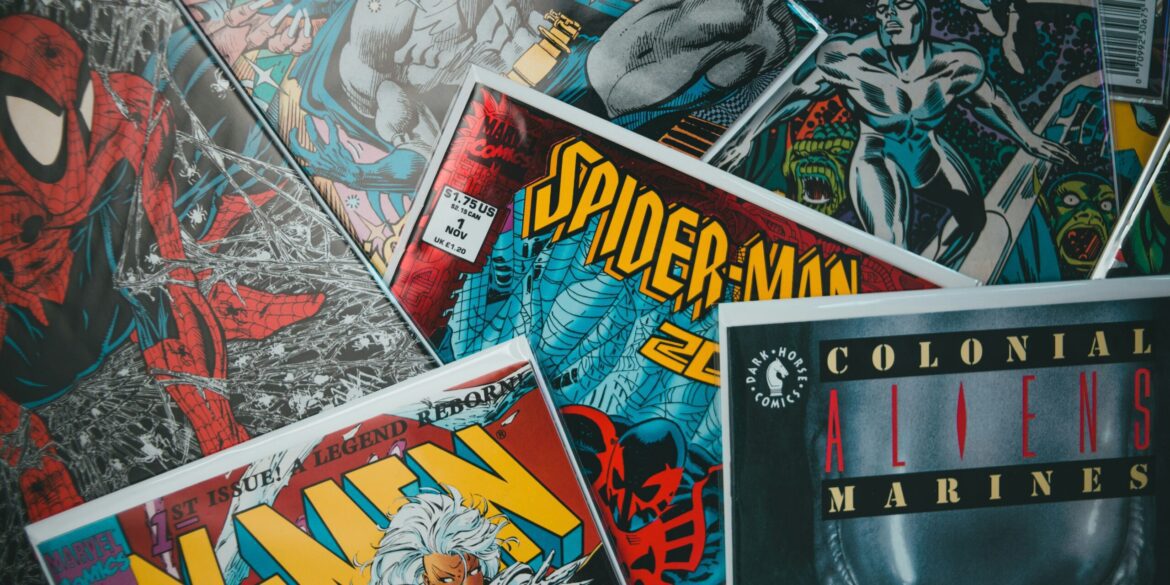Superhero films and television shows have become a dominant force in global entertainment, redefining the landscape of cinema and television in the 21st century. From the early days of campy, low-budget adaptations to the global cinematic universes of Marvel and DC, superhero narratives have not only transformed the box office but also influenced how stories are told in modern media. As Marvel and DC continue to expand their franchises, they’re pushing the boundaries of what superhero stories can be—both on the big screen and on the small screen.
The Rise of Superhero Cinema: Marvel and DC Lead the Charge
Superhero films have evolved dramatically over the past few decades. The late 20th century saw the success of films like Batman (1989), directed by Tim Burton, and X-Men (2000), which laid the foundation for the genre’s future. However, it wasn’t until the 2000s that superhero cinema truly began to dominate, thanks in large part to the groundbreaking success of the Marvel Cinematic Universe (MCU) and the expansion of the DC Extended Universe (DCEU).
Marvel’s Cinematic Universe: A Game-Changer for Hollywood
Marvel’s MCU has redefined the blockbuster model. Launched in 2008 with Iron Man, directed by Jon Favreau, the MCU’s interconnected storytelling model changed the way audiences consume film and television. Marvel Studios’ formula of intertwining movies and television shows into a single, cohesive universe has created a cultural phenomenon, with audiences eagerly awaiting each new release to see how it connects to the larger narrative.
The MCU’s success has had a profound impact on Hollywood, demonstrating that superhero films could be both commercially successful and critically acclaimed. With films like The Avengers (2012), Black Panther (2018), and Avengers: Endgame (2019), Marvel has continually raised the stakes, not only in terms of global box office receipts but also in terms of the depth of storytelling.
Avengers: Endgame, for example, became the highest-grossing film of all time at the time of its release, earning more than $2.798 billion worldwide. However, in 2021, Avatar reclaimed the title after a re-release, though Endgame’s unprecedented success still marks it as one of the most influential films in history. This unprecedented success has encouraged other studios to attempt to replicate the MCU’s formula, but none have quite matched Marvel’s ability to weave together multiple characters, stories, and themes over a decade of films.
DC’s Response: The DCEU and Recent Reboots
DC, Marvel’s most significant competitor, has had a more tumultuous road in terms of its cinematic universe. The DCEU was officially launched in 2013 with Man of Steel, directed by Zack Snyder, but it faced criticism for its dark and gritty tone, which some felt was in contrast to the more fun and accessible nature of the MCU. Films like Batman v Superman: Dawn of Justice (2016) and Justice League (2017) struggled both with critical reception and box office performance.
However, recent efforts have been made to retool the DCEU into something more akin to the MCU’s approach. The success of Wonder Woman (2017), Aquaman (2018), and Shazam! (2019) showed that DC could create standalone superhero films that resonated with audiences. More recently, The Batman (2022), directed by Matt Reeves and starring Robert Pattinson, marked a departure from the DCEU’s interconnected approach, focusing instead on a grittier, more noir-inspired version of the iconic superhero.
Additionally, DC has made significant strides in the world of television, with shows like The Flash and Supergirl on The CW, as well as the critically acclaimed Peacemaker (2022) on HBO Max. These series, along with the upcoming The Batman spinoff shows, indicate that DC is exploring new avenues for telling its stories outside the confines of the cinematic universe.
The MCU and DCEU on Television: Expanding the Universe
As the line between film and television continues to blur, both Marvel and DC have ventured into the world of streaming television, offering fans even more content tied to their beloved characters. The MCU’s venture into television began in earnest with the Disney+ series WandaVision (2021), followed by The Falcon and the Winter Soldier, Loki, Hawkeye, and Ms. Marvel. These series have provided deeper character exploration and side stories that tie directly into the MCU films, enhancing the overall narrative.
WandaVision, for example, introduced new elements to the MCU, such as the introduction of the multiverse, which would become central to Doctor Strange in the Multiverse of Madness (2022) and Spider-Man: No Way Home (2021). Disney+ shows have also allowed Marvel to explore new genres, from the sitcom-inspired style of WandaVision to the spy-thriller tones of The Falcon and the Winter Soldier.
On the DC side, while the DCEU was focused on films, television shows like Titans and Doom Patrol have gained cult followings, offering a darker, edgier side to DC’s storytelling. These shows have provided deeper dives into lesser-known characters and have catered to an adult audience, distinct from the more family-friendly superhero films.
More recently, Peacemaker, starring John Cena, became a breakout hit for HBO Max. Created by James Gunn, the series successfully blended irreverent humor with heart and grit, bringing a fresh take to the superhero genre. This success has prompted DC to continue exploring television as an avenue for character development, with multiple new series in the works, including Green Lantern and Gotham Knights.
The Future of Superhero Cinema and Television
Looking to the future, both Marvel and DC have ambitious plans to expand their cinematic and television universes. Marvel is building toward a new phase, focusing on new characters like Shang-Chi and The Eternals, while also introducing Disney+ series that focus on more niche characters such as Moon Knight and Secret Invasion.
On the DC side, the company is in the midst of an overhaul, with James Gunn and Peter Safran taking the reins of DC Studios to create a new era for the brand. Their plans include reinvigorating the cinematic universe with new Superman and Batman stories, while also bringing in new projects from lesser-known comic book characters. The goal is to create a more cohesive, interconnected narrative in the style of the MCU, but with a darker, more mature tone that has become synonymous with DC’s legacy.
Additionally, superhero TV shows continue to gain in popularity, as evidenced by the success of The Boys, Invincible, and Ms. Marvel. These shows have proven that there’s a growing appetite for superhero content that subverts traditional tropes and explores complex themes like morality, power, and human nature. As more companies jump into the superhero genre, audiences can expect a wider range of stories that push the boundaries of what superhero narratives can be.
Conclusion: A New Golden Age for Superhero Entertainment
Both Marvel and DC are at the forefront of a golden age of superhero cinema and television, and it’s clear that the genre is here to stay. As both cinematic universes expand, audiences are likely to see more creative, diverse, and genre-defying superhero stories that will shape the entertainment landscape for years to come. Whether through high-budget films or engaging television shows, superheroes are no longer just a niche genre—they are an integral part of global pop culture.

